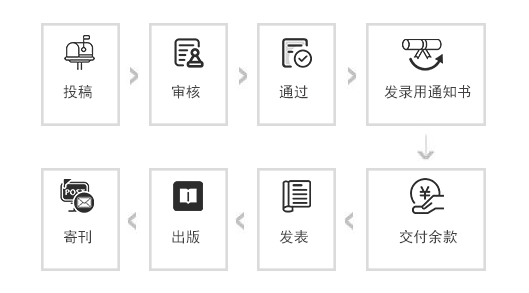LINGUA



- 中国知网数据库(CNKI)全文收录期刊
- 中国核心期刊(遴选)数据库收录期刊
- 中国万方数据库全文收录期刊
- 中国维普科技期刊数据库收录期刊
- 中国龙源数据库全文收录期刊
- 中国期刊网全文收录期刊



中国高校科技期刊研究会第9次会员代表大会在北京召开,中宣部出版局副局长张怀海、教育部科学技术与信息化司一级巡视员张国辉等领导出席会议并发表..
英文简介:Lingua welcomes submissions from all linguistic disciplines, not only general linguistics (i.e. phonology, morphology, syntax and semantics) but also philosophy of language, rhetoric, historical linguistics, pragmatics, sociolinguistics, linguistic anthropology, cognitive linguistics, psycholinguistics, and neurolinguistics.Lingua is open to submissions, whether data-driven or theoretical, that contribute to our understanding of diverse linguistic constructs and communicative phenomena. Lingua is interested in both theoretical and empirical research problems, not restricted by disciplinary boundaries, which help linguists to develop linguistic theory and to better understand all mechanisms of language as a vehicle for communication. Lingua offers a forum for research on language diversity or specificity, as well as common features across languages that govern communication. No particular linguistic theories or scientific trends are favored: scientific quality, scholarly rigor and novel contributions to scholarship are the only criteria applied in the selection of papers accepted for publication.In addition to ORIGINAL RESEARCH PAPERS, Lingua publishes OVERVIEW ARTICLES that critically survey developments in the various fields of language study.In the BOOK REVIEW section, Lingua publishes essay-type articles that review current monographs, edited volumes or conference proceedings. These reviews may agree or disagree with perspectives in the books being reviewed, and, instead of summarizing the contents, review essays discuss ideas or themes drawn from these books, making scholarly contributions in their own right.A section called NOTES & DISCUSSION features short essays that extend, analyze, or offer alternative interpretations to articles previously published in Lingua. NOTES & DISCUSSION contributions are refereed as are journal articles; the primary criterion for acceptance being substantive additions, whether criticism or endorsement, to original articles.Lingua continues the tradition of SPECIAL ISSUES focused on topics of current interest. Prospective editors of special issues are invited to inquire the Editor-in-Chief (marta.dynel@yahoo.com) concerning their proposals.中文简介:(来自Google、百度翻译)语言学欢迎来自所有语言学科的投稿,不仅包括普通语言学(即音系学、形态学、句法和语义学),还包括语言哲学、修辞学、历史语言学、语用学、社会语言学、语言人类学、认知语言学、心理语言学和神经语言学。语言学是开放的提交,无论是数据驱动或理论,有助于我们理解不同的语言结构和交际现象。语言学对理论研究和实证研究问题都很感兴趣,不受学科边界的限制,有助于语言学家发展语言学理论,更好地理解语言作为交际工具的各种机制。Lingua提供了一个研究语言多样性或特殊性的论坛,以及管理沟通的语言之间的共同特征。没有特定的语言学理论或科学趋势受到青睐:科学质量、学术严谨和对学术的新颖贡献是选择被接受发表的论文的唯一标准。除了原创的研究论文,Lingua还发表综述性文章,批判性地调查语言研究各个领域的发展。在书评部分,Lingua出版评论文章类型的文章,评论当前的专著、编辑过的书籍或会议记录。这些评论可能同意或不同意被评论书籍的观点,而不是总结内容,评论文章讨论从这些书中得出的想法或主题,并做出自己的学术贡献。一个名为NOTES & DISCUSSION的部分以短文为特色,对以前用Lingua发表的文章进行扩展、分析或提供其他解释。笔记和讨论的贡献和期刊文章一样被引用;接受的主要标准是对原文作实质性的补充,不论是批评还是赞同。Lingua延续了以当前感兴趣的话题为重点的专题报道的传统。特刊的未来编辑可以向主编询问他们的建议(marta.dynel@yahoo.com)。










英文简介:Lingua welcomes submissions from all linguistic disciplines, not only general linguistics (i.e. phonology, morphology, syntax and semantics) but also philosophy of language, rhetoric, historical linguistics, pragmatics, sociolinguistics, linguistic anthropology, cognitive linguistics, psycholinguistics, and neurolinguistics.Lingua is open to submissions, whether data-driven or theoretical, that contribute to our understanding of diverse linguistic constructs and communicative phenomena. Lingua is interested in both theoretical and empirical research problems, not restricted by disciplinary boundaries, which help linguists to develop linguistic theory and to better understand all mechanisms of language as a vehicle for communication. Lingua offers a forum for research on language diversity or specificity, as well as common features across languages that govern communication. No particular linguistic theories or scientific trends are favored: scientific quality, scholarly rigor and novel contributions to scholarship are the only criteria applied in the selection of papers accepted for publication.In addition to ORIGINAL RESEARCH PAPERS, Lingua publishes OVERVIEW ARTICLES that critically survey developments in the various fields of language study.In the BOOK REVIEW section, Lingua publishes essay-type articles that review current monographs, edited volumes or conference proceedings. These reviews may agree or disagree with perspectives in the books being reviewed, and, instead of summarizing the contents, review essays discuss ideas or themes drawn from these books, making scholarly contributions in their own right.A section called NOTES & DISCUSSION features short essays that extend, analyze, or offer alternative interpretations to articles previously published in Lingua. NOTES & DISCUSSION contributions are refereed as are journal articles; the primary criterion for acceptance being substantive additions, whether criticism or endorsement, to original articles.Lingua continues the tradition of SPECIAL ISSUES focused on topics of current interest. Prospective editors of special issues are invited to inquire the Editor-in-Chief (marta.dynel@yahoo.com) concerning their proposals.中文简介:(来自Google、百度翻译)语言学欢迎来自所有语言学科的投稿,不仅包括普通语言学(即音系学、形态学、句法和语义学),还包括语言哲学、修辞学、历史语言学、语用学、社会语言学、语言人类学、认知语言学、心理语言学和神经语言学。语言学是开放的提交,无论是数据驱动或理论,有助于我们理解不同的语言结构和交际现象。语言学对理论研究和实证研究问题都很感兴趣,不受学科边界的限制,有助于语言学家发展语言学理论,更好地理解语言作为交际工具的各种机制。Lingua提供了一个研究语言多样性或特殊性的论坛,以及管理沟通的语言之间的共同特征。没有特定的语言学理论或科学趋势受到青睐:科学质量、学术严谨和对学术的新颖贡献是选择被接受发表的论文的唯一标准。除了原创的研究论文,Lingua还发表综述性文章,批判性地调查语言研究各个领域的发展。在书评部分,Lingua出版评论文章类型的文章,评论当前的专著、编辑过的书籍或会议记录。这些评论可能同意或不同意被评论书籍的观点,而不是总结内容,评论文章讨论从这些书中得出的想法或主题,并做出自己的学术贡献。一个名为NOTES & DISCUSSION的部分以短文为特色,对以前用Lingua发表的文章进行扩展、分析或提供其他解释。笔记和讨论的贡献和期刊文章一样被引用;接受的主要标准是对原文作实质性的补充,不论是批评还是赞同。Lingua延续了以当前感兴趣的话题为重点的专题报道的传统。特刊的未来编辑可以向主编询问他们的建议(marta.dynel@yahoo.com)。
来稿要求:
论点新颖、论证严密、论据充足、文字精练。论文字数:5000字符-8000字符为宜,图表也要计算在内,不包括英文摘要关键词。
标 题:
文章标题要言简意赅,30字以内。作者署名:署真实姓名,注明作者单位、单位所在省市和邮政编码。摘 要:要用第三人称概括全文,300字以内。
关 键 词:
用3~8个关键词术语反映论文主题。专用符号:名词、术语、数字、计量单位、标点符号和数学符号等,必须符合国家标准;外文人名、地名和术语需译成中文。
图表格式:
文中插图与表格放在相应正文之后,分别按出现顺序用图1、图2或表1、表2统一编号。插图应为黑白色,其序号、标题及注释居中放在图的下方,表格的序号及标题置于表格上方,表注放在表格的下方(建议:由于篇幅限制,除核心期刊外尽量不用或少用图表)。
正文注释:
采用尾注形式,注释号①,②,③等标在相应正文右上角。
章节体例:
章节标题为:一级标题不编号,用黑体居中排,二级标题不编号,用楷体放在相应的文字段首与正文空一字格接排正文。 三级标题分别用1.2.3.顺序编号。文中接排标题用(1),(2)编号。
参考文献:
参考文献置于正文之后,近5年的不少于3条,用[1],[2]……顺序编号,如文章中有内容需要解释请用尾注形式。参考文献不全者不能进入审稿阶段。{参考文献格式如下:(1)图书:作者.书名(版本)[M].出版所在地: 出版社,出版年:(1)页码.
(2)期刊:作者.题目[J].期刊名,年,卷(期):页码.
(3)电子参考文献:作者.题目[OL].(文章的发表日期).[本文引用日期].作者简介:来稿者请附个人简介,内容包括姓名(出生年—),性别,籍贯,民族,学历,工作单位,职称,研究方向,通讯地址,联系电话及电子信箱。
一般情况下,您将在3个工作日内收到审稿结果。如文章有很强的时效性,请说明需要最晚刊发时间。
| 论文编号 | 作者姓名 | 论文题目 | 录用情况 |
|---|---|---|---|
| TG251-13579 | 韩丽炘 孟涛 温娟娟 刘晓琴 | 基于互联网的CBL+TBL教学法在病理学实验教学中的应用 | 已录用 |
| TG251-13681 | 邹隆强 杨清余 钟鸿路 李正南 陈 | 医学运动康复联合消肿止痛方治疗急性踝关节扭伤临床研究 | 已录用 |
| TG251-13794 | 林雨慧 陈霄雯 郑颖彦 朱永凯 贾 | 基于SWOT模型的儿童专科医院临床研究发展策略分析 | 已录用 |
| TG251-13762 | 郑鸿雁 | 重复经颅磁刺激治疗肝脾不调型功能性肛门直肠痛的临床研究 | 已录用 |
| TG251-13891 | 袁召1 赵会谢2 赵海深3 | 真武汤治疗阳虚水泛型慢性心力衰竭患者的临床研究 | 已录用 |
| TG251-13536 | 王杰1 张蕾蕾2 | 血脂和载脂蛋白水平与分化型甲状腺癌及其病理学特征的相关性探究 | 已录用 |
| GD24-5203 | 单一青 高鹏慧 姚瑶 | 思维导图护理对宫颈癌患者行腹腔镜术后康复的影响 | 已录用 |
| GD24-5217 | 林秀娟 梁静文 刘美仙 陈惠贤 | 加速康复外科管理模式在胸腔镜肺段切除术患者围手术期护理中的应用效果 | 已录用 |
| GD24-5213 | 杨素雯 何洁芳 陈妙霞 廖景升 | 健康行为改变整合理论对于宫颈癌晚期放疗患者依从性及自我效能的影响 | 已录用 |
| GD24-5199 | 杨月惠 王凤婷 | 个体护理计划在心脏瓣膜置换手术围手术期患者中的应用 | 已录用 |
邮箱:cnkibianjibu@163.com
QQ:
扫码联系: